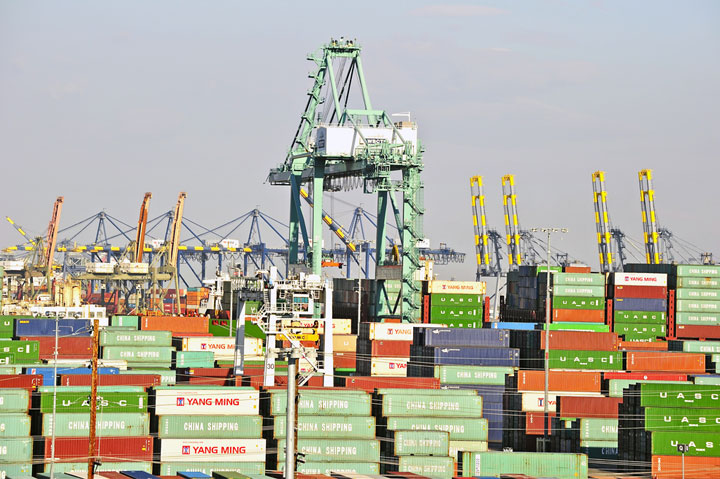News October 21, 2021
Federal Bill Aims to Reform Shipping Industry
The act takes aim at what some say are unfair, anti-competitive practices that have grown worse amid the supply chain disruption of the COVID-19 pandemic.
A bipartisan bill has been introduced in the U.S. House of Representatives that aims to reform practices in the ocean cargo shipping industry while supply chains across the globe are plagued by delays and significant disruption.

Introduced in August by Rep John Garamendi (D-CA) and Rep. Dusty Johnson (R-SD), the Ocean Shipping Reform Act of 2021 (OSRA) comes amid complaints from importers and exporters that some cargo carriers have engaged in what the congressmen describe as unfair, anti-competitive and possibly illegal business practices, all of which are alleged to have worsened amid the rampant demand for shipping space and containers that’s occurred during the economic recovery from 2020’s COVID-related shutdowns.
If ultimately signed into law, the shipping reform act would institute reforms geared toward combatting the alleged bad practices, thereby giving shippers more leverage and recourse when dealing with carriers and supporting American exports by establishing reciprocal trade opportunities, the congressmen say.
Among the ways the act intends to accomplish this is by giving the U.S. Federal Maritime Commission (FMC) greater power to enforce laws that regulate shipping practices.
In outlining the act’s key tenets, Garamendi and Johnson said the legislation would:
- Authorize the FMC to self-initiate investigations of ocean common carrier’s business practices and apply enforcement measures, as appropriate.
- Require ocean carriers to adhere to minimum service standards that meet the public interest, reflecting best practices in the global shipping industry.
- Require ocean carriers or marine terminal operators to certify that any late fees – known in maritime parlance as “detention and demurrage” charges – comply with federal regulations or face penalties.
- Shift burden of proof regarding the reasonableness of “detention or demurrage” charges from the invoiced party to the ocean carrier or marine terminal operator.
- Require ocean common carriers to report to the FMC each calendar quarter on total import/export tonnage and twenty-foot equivalent units (loaded/empty) per vessel that makes port in the United States.
- Establish reciprocal trade to promote U.S. exports as part of the FMC’s mission.
- Prohibit ocean carriers from declining opportunities for U.S. exports unreasonably, as determined by the FMC in new required rulemaking.
A coalition of 152 companies and trade associations representing U.S. importers, exporters, transportation providers and other supply chain stakeholders have announced their support for OSRA.
Meanwhile, some in the promotional products industry are supporting the legislation. Saying that OSRA establishes “common-sense reforms” and creates a “shippers’ bill of rights,” Promotional Products Association International (PPAI), which lobbies government on behalf of the promo industry, is urging industry pros to contact their local U.S. representatives to tell them to co-sponsor the bill. The bill had 34 congressional co-sponsors as of this writing.
“At such a critical time in our industry, with distributors and suppliers alike facing enormous challenges just to get products in the hands of customers, each of us must do all we can to support efforts that can help break this shipping logjam,” said Timothy M. Andrews, president and chief executive officer of ASI, which serves a network of 25,000 suppliers, distributors and decorators in the $20.7 billion promotional products industry. “I urge everyone in the industry to educate themselves on OSRA and contact their representatives to beseech them to do all they can to get commerce – and ships – moving again.”
Some in the shipping industry think the OSRA legislation could do more harm than good.
Supply Chain Management Review reported that Brian Glick, founder and CEO of Chain.io – a cloud-based freight forwarder – believes the proposed reforms “are more likely to do little to fix the issues plaguing shipper-carrier relationships in the near-term. And longer-term, they could actually build more rigid walls between the two segments, rather than the bridges needed to truly solve the cascading crises that led to the current breakdown in the maritime shipping sector.”
Meanwhile a consortium that includes Ports America and APM Terminals, as well smaller companies and regional maritime associations among others, has come out firmly against OSRA, saying it could exacerbate port congestion and other challenges.
“This bill [HR 4996] aims to address concerns about terminal congestion by reducing beneficial cargo owners (BCOs) responsibility to collect cargo from marine terminals,” the consortium said in a statement reported by Seatrade Maritime News. “Before one container can come into a space, another has to be removed. When containers are unloaded from ships, they are allowed a period of ‘free time’ on the terminal. However, when containers are not picked up within the agreed-upon time, the Beneficial Cargo Owners (BCOs) are charged. These charges – demurrage and detention – are critical incentives for BCOs to pick up cargo.”
